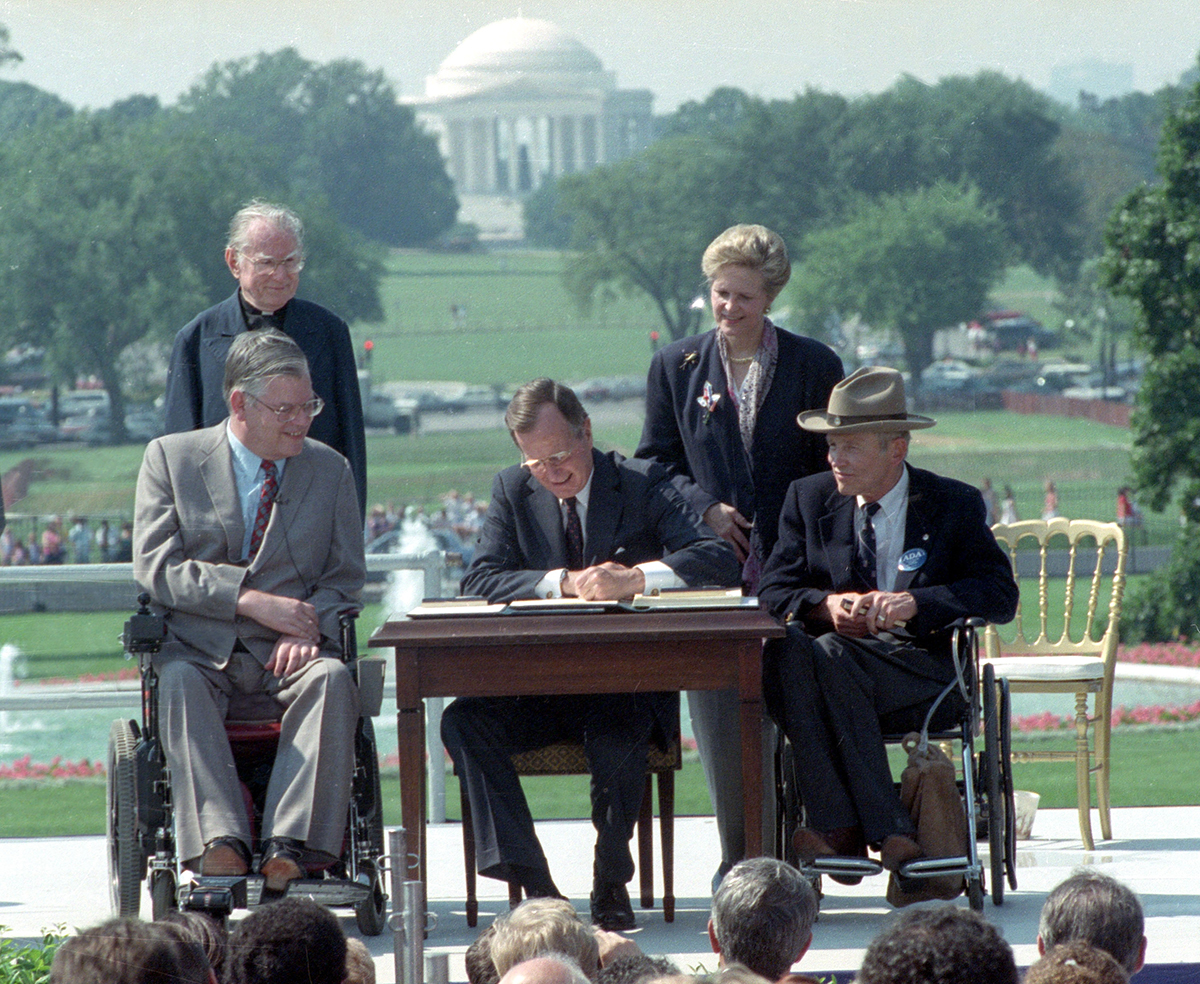Easter Seals to Salute ADA’s 25th Anniversary with Giant Paper Chain in the Common

Photo via AP
It’s difficult to imagine life in this country before the Americans with Disabilities Act, which turns 25 this year. The landmark legislation afforded disabled Americans greater protection from discrimination, and required that reasonable accommodations be made, both in public spaces and the workplace.
To celebrate this milestone, Massachusetts Easter Seals, which advocates for children and adults with disabilities, are saluting the men and women who fought for these protections in a symbolic way.
“They’re commemorating what disability advocates did back in the 70s and 80s leading up to the passage of the ADA, when buses were not accessible for people with wheelchairs to use. People with wheelchairs would chain themselves to buses,” CEO Kirk Joslin says. “Even to get the ADA passed itself, people with disabilities went into the Rotunda of the Capitol because Congress was dragging its feet in the final passage of the ADA, and they chained themselves and their wheelchairs together, and refused to move until Congress acted.”
Members of Easter Seals’ youth program have crafted paper links with their names and reasons why the ADA is important to them. Together, these links will form a chain of thousands to be displayed in the Boston Common on July 22, as part of the 25th anniversary celebration there.
“They’ve gone out, they’ve gone to companies, and they’ve gone to their schools, and they’ve gone to community organizations, and they’ve got chains all over the state of Massachusetts. And they’re going to try to bring them all together on the Boston Common,” Joslin says.
Joslin says these young activists call themselves the “ADA Generation,” because they’re all under 25 and have grown up “with the ADA having their backs.” Even still, there’s more work to be done. “The biggest ground to cover for people with disabilities, and certainly these youths, is employment,” Joslin says. “Lots has happened since the ADA. There are more curb cuts and more physical access to the community than there was 25 years ago. They have a lot of opportunities to go to public schools that weren’t always in existence and get education.”
“But employment is probably the unkept promise of the ADA. People with disabilities are still basically unemployed,” Joslin says.
After nearly 40 years with Easter Seals—starting as an advocate for disabled children in public schools and working his way up to the organization’s helm—Joslin will retire at the end of this year. Much has changed, both since Joslin came aboard and the ADA’s passage. But his passion for youths has remained constant.
“Even as my own kids grew up, I was one of the few parents who enjoyed them when they were teenagers,” he jokes.


